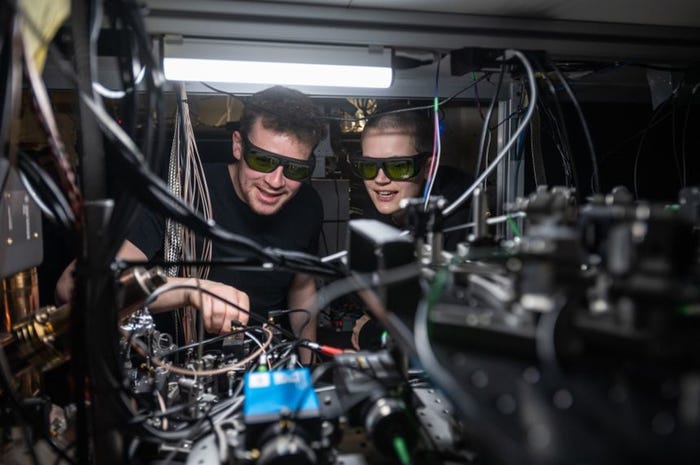
Connects decision-makers and solutions creators to what's next in quantum computing
Disrupting Ethically With AI: EY Thought Leadership – Mobile World CongressDisrupting Ethically With AI: EY Thought Leadership – Mobile World Congress
Unlike prior technologies, which are process-driven, AI is objective-driven, making ethical considerations paramount

No one could have predicted this time last year that Mobile World Congress (MWC) 2024 would feature AI in nearly every device people will soon hold in their hands or use in their workplace. Such is AI’s disruptive nature that it comes with caveats about ethical, responsible and transparent deployment and its effect on the future workforce.
In a conversation at MWC 2024, in Barcelona, Spain this week, EY global data and AI leader Beatriz Sanz Saiz offered her observations, insight and advice for a healthy AI future.
Enter Quantum: What are your observations about AI at MWC this year?
Beatriz Sanz Saiz: Compared with previous years, AI is pervasive. MWC is all about connected intelligence, bringing AI into mobile devices and integrating it into networks. Is AI somehow ruling the world? I don't think so. The most interesting thing for me is now you can see it; it is real, it is happening.
Given the disruptive nature of AI, why is ethics important?
Two things are important to understand. Firstly, this is the first technology that does not have a proper process base — for example, to produce a phone follow this step and that step. That has not changed since Henry Ford.
This technology is not process-based, it is objective-based. If you tell the AI what your goal is, for example, fly me for free from New York to Barcelona she – I always call AI she – will do it. It might take a week and she might ask you to collect coupons, but she will do all she can to achieve the goal.
In business, this translates to real resources, such as marketing or procurement functions. There are more than 80 companies in the U.S. with more than $100 million in revenue managed by one person. That is an example of how, if technology is objective-driven, its outcome is a completely new paradigm.
The other factor is this technology is probabilistic, not deterministic. We live in a deterministic world so two plus two always equals four. That is not the case with AI, because if you ask the same prompt question 10 seconds later, 80% of the time the answer might be the same, but there is a possibility it will not be because it is probabilistic.
So, it is less about trust and more about safety and responsibility. This is an important nuance because, while ethical and responsible AI is going to skyrocket, trust is flat. Trust is binary – you either trust it or not. This creates new risks as there is a degree of uncertainty you have to reduce for important applications, like in an autonomous car or the emergency room.
What has been the progress to date on ethical AI?
We have seen an unprecedented response, with an effort to regulate from all parties: governments, policymakers, software developers and enterprises. During the G7 conference in Japan in October, the G7 countries agreed on AI principles and a code of conduct to promote the safety and trustworthiness of AI systems.
The response from the Biden administration has been huge, but the biggest has been from the EU, which is a risk-based but pragmatic approach. But I believe not all issues will be resolved by regulation and some need to be addressed by the industry itself.
There is a lot of investigation into 'controversial' neural networks with in-built bias because the technology is not designed to address its unethical and probabilistic nature. But I am very positive about the future.
What impact will AI have on the labor market?
I’m not worried AI will take my job. Think about when you were a student and you get a tut,or, your performance goes up. In this scenario, every employee will have an expert tutor.
Companies need to hire expert resources or the skill level goes down. If you have a software engineer with an average performance and then give them access to the best code from the top expert, their performance goes up.
We expect low-cost offshore locations to source a big portion of the future labor market, so AI training can offer growth in terms of employment to some or a lower cost to others.
Last year you could not have predicted where AI would be this year. But what do you predict for next year?
This year, it is still early days, but we have seen Samsung and other manufacturers integrating AI with mobile devices. Next year it will be pervasive and we will see AI LLMs installed on mobile devices.
You will also see more (developments on) getting more AI processing power on computer chips. If you think about the value chain of AI, that is dependent on computing power.
Read more about:
Mobile World Congress 2024About the Author
You May Also Like






